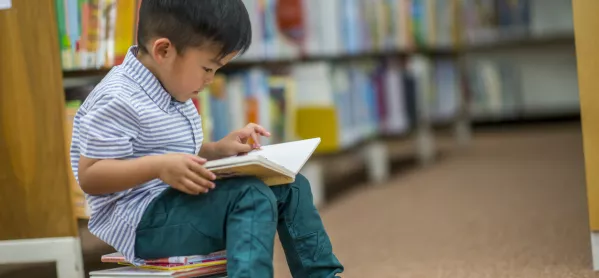‘We’ve started defining children’s books as a luxury’
Share
‘We’ve started defining children’s books as a luxury’
In times of austerity, we strip back. We look closely at what is essential and what little luxuries we might be able to survive without for a while.
Have you ever thought about the essentials and the luxuries in a primary school? Have schools got it right, in this time of tight budgets, on the essentials and the luxuries?
Consider the skills a child needs to access the curriculum fully. I think all would agree that reading is high on that list, if not top. Then also consider what children require to develop into competent readers. Topping this list, surely, is a plethora of quality books.
So why, time and again, do I get questions and requests for advice about how to raise money for books for schools?
Defining books as a luxury
I’ve been there myself. In fact, I’ve put in grant bids and used them to buy books. I get that budgets are tighter than tight, and I’ve seen every budget sliced off the top again and again until there’s not much left. But, honestly, it still gets me a little vexed.
When we reduce the book budget to nothing, and rely on fundraising, grants, book fairs and donations for school books, what are we in fact saying about reading? That we can survive without books for a few years? That the older books we’ve got will do? We risk defining books as a luxury, which is a dangerous choice.
The national curriculum states: “All pupils must be encouraged to read widely across both fiction and non-fiction to develop their knowledge of themselves and the world they live in, to establish an appreciation and love of reading, and to gain knowledge across the curriculum.”
How do you read widely when the books are slim pickings? The simple answer is: you can’t.
A short path to failure
In schools where children are taken to the local library by their families, where children visit bookshops and have their own books at home, you’ll get away with these slim pickings. Maybe. But will you be growing a reading culture? I’d say that’s not likely to happen.
In a school where children aren’t taken to the local library and don’t own their own books - well, you’re on a short path to failure for these children. Books and reading should be at the heart of your curriculum - they’re an essential. An essential that should be the first secured item on the budget.
Reading for pleasure is a powerful weapon in your battle against deprivation and underachievement. Why would you not arm your teachers with the best possible tools?
Now, I hear the shouts from those teachers who enjoy curating their own collection of children’s books for their class, buying several books a month (*cough* a week). These teachers I applaud. You really are sharing the book love.
But a culture where it is expected for teachers to dip into their own pockets shouldn’t be encouraged. All children should have access to quality books. This should not be a roulette for which teacher you get. The responsibility of providing this lies with the leaders of the school.
Books equal success
Book budget equals success budget. Success in reading breeds success across the school. Reading opens the door to the rest of the curriculum, grows empathy and, as our current children’s laureate, Cressida Cowell, puts it, “gives children special powers”.
Don’t make the mistake of thinking you’ve invested in reading for pleasure by focusing solely on phonics and decodable scheme books. Reading is not just phonics. Heavy investment in phonics alone is just not going to cut it. This quote, attributed to Mark Twain (aren’t they all?), sums this point up nicely: “The man who doesn’t read good books has no advantage over the man who can’t read them.”
Investment in reading for pleasure means, year on year, curating a collection of quality books that reflect the curriculum, link to the curriculum, reflect the readers, take the readers to new places and feelings and provide enjoyment for all readers. This is no mean task, but will certainly reap rewards.
There are so many brilliant children’s books out there now that we really are spoiled for choice.
So I implore headteachers and senior leaders to ringfence (make that a triple-iron-clad fence) the budget given to books, the library, author visits and reading in general at their schools.
If Ofsted comes knocking at your school soon, make sure that, when they take a deep dive into reading, they are swimming in an ocean of quality books.
Heather Wright is a primary teacher, and the founder of literacy organisation Reading Rocks. Reading Rocks South takes place at Kingslea Primary School in Horsham on Saturday 5 October. It is sold out, but there are tickets left for #RR_North and the #RR_PopUp events in Manchester, London and Birmingham


